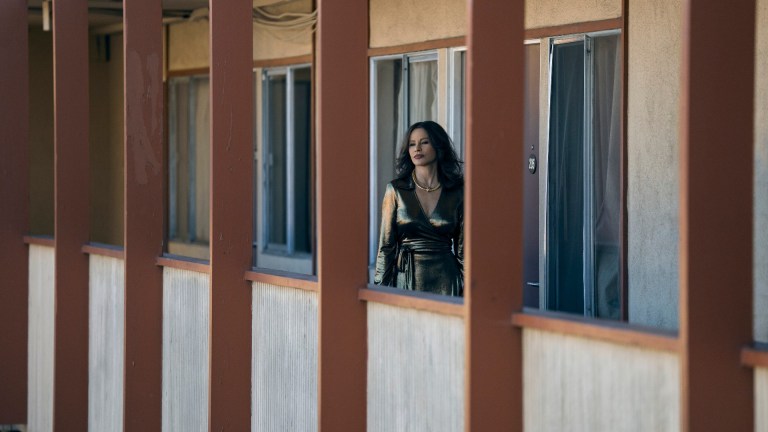Griselda Blanco True Story: What Netflix’s Griselda Series Leaves Out
Netflix's Griselda can't fit the entire story of the titular queenpin into six episodes.

This article contains spoilers for Griselda season 1.
Netflix’s latest crime drama miniseries, Griselda, from the minds behind Narcos, had an immense and wild real-life story to pull from. Just like her infamous contemporary and compatriot Pablo Escobar, Griselda Blanco (aka The Godmother and The Queen of Cocaine), played by an unrecognizable Sofia Vergara, led a notorious life driven by drugs, violence, greed, and murder. And while the show does a pretty comprehensive job of condensing the most thrilling, dramatic aspects and events of her life into six hours, it’s a nearly impossible task to include everything about her. The details in the life of such prominent and vicious criminals like Blanco to pick from are almost endless.
Thus, we gathered the most gripping elements the miniseries chose to leave out.
Griselda’s Early Years
Likely, the biggest omission in Griselda is the lack of portrayal of Blanco’s upbringing that led her to become a ruthless criminal. Though it’s mentioned briefly that she came from a poor and violent background, there’s not much on her immediate family. According to Biography.com, Blanco was raised by a single mother who was an alcoholic and prostitute. She regularly beat her, and allegedly, one of her ex-boyfriends sexually assaulted Griselda as a child. That resulted in Blanco running away from home and becoming a pickpocket as a teenager, and it’s also said that she turned to prostitution at that time for financial support — though the latter allegation was denied by multiple sources.
In the documentary Cocaine Cowboys 2: Hustlin’ With the Godmother, her former lover and drug dealer, Charles Cosby, shared a story about Blanco’s first kidnapping. He claimed that Griselda was only 11 years old when she abducted a minor from an upscale neighborhood in Colombia. And when she didn’t get a ransom for the kid, she shot the child dead to prove she wasn’t bluffing. Committing such atrocities so young, it’s no surprise that Griselda developed a thirst for blood early on and often settled her problems (both personal and professional) by killing throughout her life. In a perhaps more nuanced depiction, these details could’ve helped us understand and delve into Blanco’s personality and psyche a little more.
As a young adult, Griselda also had her first clash with the law long before she arrived in Miami in 1978 — where the series begins. She lived in the United States from 1964 as an illegal immigrant with fake documentation, setting up a successful drug operation in Queens, New York. Even though she later became known as a prominent cocaine dealer, sources claim that she initially started drug trafficking with large amounts of marijuana. Her main reason for switching to cocaine was the easier transportation. Nevertheless, Blanco had to flee America in 1975 when she was indicted on federal drug conspiracy charges — but it only took her three years to return and set up shop again.
The Godmother’s Peculiarities
Sofia Vergara’s casting for Griselda’s leading role was a curious one for several reasons. Not only she’s significantly taller (5’7”) than La Madrina was (5’0”) but a lot slimmer, too. This only matters because, according to The Independent’s reporting, Blanco was a true “chameleon.” Besides uncanny wardrobe choices (on some days, she dressed as a typical American soccer mom from the suburbs while on others as an eccentric Colombian woman), she often altered her physical appearance by dyeing her hair and losing and gaining massive amounts of weight (30 pounds). This aspect of her lifestyle (which may’ve been a strategy to throw off her enemies) is entirely dismissed in the series.
Though Vergara wears a ton of makeup and prosthetics to look rougher and less attractive than she really is, her appearance barely changes throughout the six episodes — despite the series covering nearly a decade of Griselda’s life. It feels like a wasted opportunity (even if it’s reasonable) that the creators didn’t include this in some form.
But there’s an even more puzzling choice of omission in the titular character’s depiction that the show barely touches on. It wasn’t a secret that Blanco was attracted to women as much as she was to men. She was bisexual, often throwing drug-fuelled orgies, not to mention her sexual encounters with women while she was married. We get a taste of that to some extent, but this is definitely something that could’ve gotten more screen time, especially during the relationship with her third husband, Dario Sepulveda (Alberto Guerra).
Griselda’s Sons Were Much More Involved in the Business
Blanco’s three eldest sons (Uber, Dixon, and Osvaldo) have a vital role in humanizing Griselda in the miniseries. However, their involvement in the drug business is only partially shown in the last two episodes. In reality, they played a much more significant part in maintaining their mother’s reign. According to Blanco’s youngest son, Michael Corleone Blanco (yup, she named him after Al Pacino’s character in The Godfather), when they lived in California, his brothers were running the family business in Miami, Beverly Hills, and San Francisco.
The three of them were also arrested around the same time their mother was, and they all spent time in prison. Their fate isn’t a secret in the show (they were all killed after their release), but there’s little said about Corleone, the only descendant of Blanco who’s still alive. Though he spent some time behind bars, too, he managed to escape the cartel lifestyle and now runs a successful clothing brand called Pure Blanco.
Griselda’s Incarceration and Final Years Until Her Death
Contrary to the female character we see in the series, Griselda was arrested by a DEA agent called Bob Palombo, who chased her for over a decade. Finally catching the drug queen in 1998, Blanco was put in jail, yet the case against her (despite the outrageous crimes) wasn’t exactly a strong one. Even though the series tells us the main reason some of the charges against her fell apart (Rivi’s phone-sex scandal), prosecutor Stephen Schlessinger told The Independent that the judge in Blanco’s case was backed into a corner. Initially sentencing her to 35 years, he had to backpedal, claiming he “forgot” that he promised the defense not to give Blanco a longer sentence than her sons received just before her trial.
While incarcerated between ’98 and ’04, there was also a rumor that Griselda was conspiring to kidnap John F. Kennedy’s son to negotiate her release from prison. Though this was never officially confirmed, it would’ve made an intriguing detail of how she tried running things even from jail. There’s also no mention that she was released early in 2004 since she developed severe health issues (and suffered a heart attack two years prior) due to being a lifelong smoker, reported the New York Post. We don’t see any footage of her final years either, in which she lived as a free woman in her home country, highly respected in the community. Eventually, however, she couldn’t escape her destiny.
In 2012, as she was leaving a butcher shop at the marketplace she frequently visited in Medellin, she was assassinated in an identical execution style she brought to Miami in the 1980s. Her shooter arrived on a motorcycle, shot her twice, then quickly fled the scene. It was a mimicry of her own viciousness, dying in the same undignified manner as she ordered the deaths of hundreds during her reign in America.
Instead of showing her cold-blooded murder, the show’s creators went with a melancholy and emotionally devastating ending that’s just as fitting because the crucial point hasn’t changed: In the end, Griselda Blanco paid for her sins and got the fate she deserved.
All six episodes of Griselda are available to stream on Netflix now.
